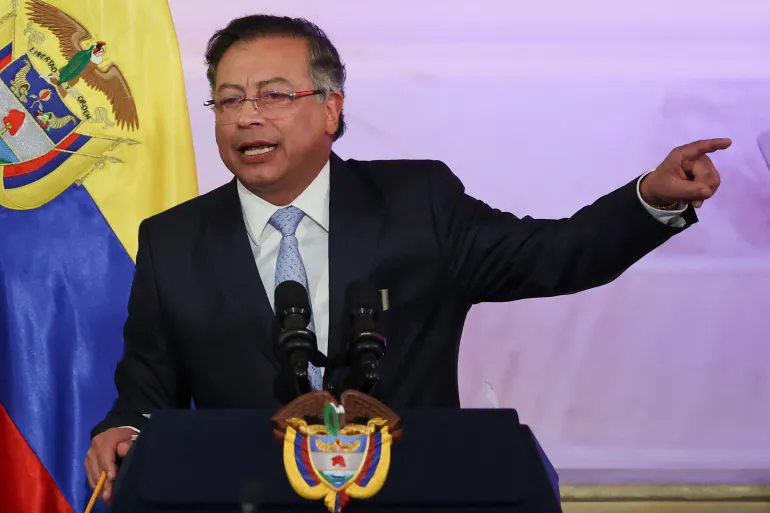Colombian President Gustavo Petro declared on October 20, 2025, that the Free Trade Agreement (FTA) with the United States is “de facto suspended” due to a “unilateral decision by the US government.”
The statement, made through the social media platform X (formerly Twitter), states that the imposition of 10% tariffs by the Donald Trump administration violates the clauses of the agreement and nullifies the tariff preferences that governed the bilateral relationship.
“They were unilaterally broken by the US, not by us, and they leave us free. Let us not be afraid of being free. We have the whole world ahead of us. Let us work to explore it, understand it, and seduce it. We Colombians know how to do it,” proclaimed the president, in a message that could be interpreted as a preview of measures aimed at deepening the breach of the treaty.
Petro’s remarks come amid escalating tensions that included the recall of the Colombian ambassador to Washington, Daniel García-Peña, for consultations after a series of public insults and threats from Trump against Petro. The former US president even accused the Colombian leader of being linked to drug trafficking without presenting evidence and threatened to use force to eradicate illicit crops, also suspending anti-drug aid to Colombia.
Petro, for his part, has strongly condemned the US military operations in the Caribbean that resulted in the deaths of dozens of people, including Colombian fishermen. “Explain to me why you helped murder a humble Colombian fisherman,” he retorted in a previous rebuttal, attacking what he describes as the hypocrisy of a policy that, under the pretext of anti-drugs, seeks to control the region’s resources.
In his statement, Petro did not limit himself to reporting on a trade measure. He constructed a narrative of emancipation. Citing Trump’s statement that Colombia is “out of control,” the president responded ironically and firmly: “It’s true. The only real control over a democracy is not exercised by foreigners who hate migrants and Latin Americans; it is exercised by the people themselves. Trump does not control Colombia; he only obeys the Colombian and Latin American people, if he wants to.”
In this regard, Petro indicated that on Monday he will review “the measures we will take, with the chancellor, the vice president, our ambassador to the US, the minister of Commerce and Agriculture, the person in charge of the Illicit Crop Substitution Program, the minister of Defense, the most intelligent Colombian response to this irrational threat.”
The president revealed that the Ministry of Commerce has already prepared decrees defending “national labor and the life of humanity,” which he has not yet signed. According to his post, “Council of Ministers televised on public channels,” he explicitly called on the media to avoid “disinformation bubbles in the regions.”
The Free Trade Agreement (FTA) between Colombia and the United States, in force since 2012, was born amid controversy and consolidated as a structurally asymmetric agreement. Its implementation, forced after prolonged resistance from the US Congress due to human rights violations in Colombia, prioritized commercial interests over labor rights from the outset.
Far from being an engine of balanced development, the FTA deepened an extractivist model, making the Colombian economy more dependent on the export of commodities such as oil and coal, whose volatile prices on international markets determined the fate of the trade balance. This dependence became evident when the initial surplus evaporated, giving way to a chronic deficit that revealed the model’s vulnerability.
Colombia went from selling almost double what it imported to the United States in 2010 to having a trade deficit in 2023. Source: MinCIT
Domestically, the treaty acted as a sharp divide between winners and losers. While agro-export conglomerates and some industrial sectors gained access to the North American market, vast segments of national agriculture—such as corn, rice, dairy, and poultry producers—were exposed to unfair competition from highly subsidized U.S. products.
This dynamic not only generated a serious socioeconomic impact on the Colombian countryside, but also reinforced an unequal distribution of benefits, concentrating profits and socializing losses. The promise of comprehensive “development” was shattered by the reality of a more primary and deindustrialized economy.
IMAGE CREDIT: “The truth will set you free, said Martí, and today relations with the United States are becoming more honest,” concludes Petro’s post published amid an escalation between Bogotá and Washington. Photo: Colombian Presidency
[ SOURCE: teleSUR ]

